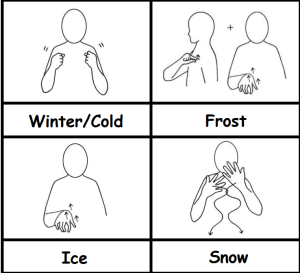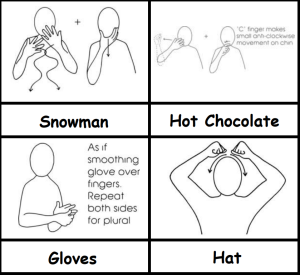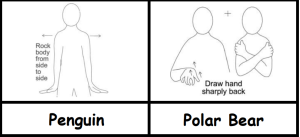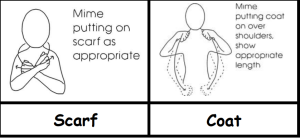In 2018 Paul* contacted Alison Brooks to investigate a claim following the death of his wife, Mary*, in December 2017. She was only 64 years old and had died because of an undiagnosed Pulmonary Embolism (“PE”). This is when a blood clot develops in a pulmonary artery, often when the clot has started as a DVT in the leg. It is easily treatable because anti coagulants are given which break down the blood clot.
Paul knew about Legal 500, an independent legal guide which recommends lawyers in the UK , who are experts. Paul contacted Barratts Solicitors, because we are ranked in the top tier for clinical negligence claims, and asked Alison to help him investigate the death of his wife. He knew that he needed someone with experience to help, as the GP involved in Mary’s care, had denied that he had done anything wrong.
The Facts
In October 2017, Mary had undergone foot surgery and was recovering from the operation but, on 1st December, she began to feel breathless. Paul called the GP surgery and Mary was seen by a doctor who carried out some tests. Despite noting that PE was a possibility, he decided that Mary probably had bronchitis, a condition she had previously suffered from, and prescribed antibiotics.
Mary continued to feel unwell but believed she would soon feel better with the antibiotics. Tragically, in the early hours of 3rd December, Mary collapsed from a huge Pulmonary Embolism. Paul was trained in First Aid and tried to resuscitate his wife, but it was too late, and nothing could be done to save Mary.
The Claim
Paul wanted to ensure that the GP would not make the same mistake again, but the GP did not accept that his assessment of Mary had been negligent. Alison recognised that Paul was also suffering because of the traumatic circumstances of Mary’s death and might be able to claim compensation for his psychiatric illness. This is called a “secondary victim” award and can be hard to prove in medical cases because of restrictions in the law, which limit who can make a claim.
Paul was also suffering financially as he had his own health problems and relied on Mary to look after him. A claim for the support, that Mary would have provided to Paul, was made, as well as an award for her pain and suffering and funeral costs. When someone dies, the Government also sets a fixed amount for bereavement damages. This was £12,890 under the Fatal Accidents Act 1976 for deaths before 1 May 2020.
The Defence
A claim was issued against the GP who saw Mary on 1st December. We argued that the Defendant:
- Should have carried our further tests for PE, at home or in hospital – the Wells score was developed by NICE (the National Institute for Clinical Excellence) and any result over 4 means a PE is likely; Mary’s score was 4.5.
- Failed to properly inform Mary and her husband that Pulmonary Embolism was more likely than a chest infection and was potentially fatal if left untreated.
- Did not follow up with Mary and falsely reassured her by prescribing antibiotics.
The Defendant argued that he did not refer Mary to hospital because she had refused to go in for treatment. A small note in the GP records stated:
Plan; offered admission for PE -patient declined.
The Defendant tried to rely on this entry, but we believed that a Court would not have accepted this defence because:
- Mary had not refused medical treatment before and it would have been irrational for her to refuse admission to hospital, for a potentially fatal condition, if properly informed.
- Paul was present during the examination, and the ambulance records showed that he also believed Mary just had a chest infection.
- A GP with a patient refusing life threatening treatment would have made a very full note to explain the patient’s decision but the Defendant’s note was sparse.
- If the Defendant was correct, Mary could still have been treated in the Community without going to hospital but the GP did nothing.
The Defence agreed that Mary would have survived if admitted to hospital any time on 1st December. This meant the case would succeed if we could show the GP had not provided a reasonable standard of care.
The GP continued to defend the case but we proposed a settlement meeting in 2021 and were able to settle the case with very little deduction for the risk of losing the case at Trial. This indicated that the Defendant’s advisers probably took a similar view to us about the case.
This has been a very difficult few years for Paul. He will never forget Mary; they were married for 18 years. Paul was disappointed that the GP never admitted any fault for Mary’s death, but he has recovered from his own psychiatric illness and has a new partner. Paul agreed to share this story as he wanted to highlight the risks of DVTs and Pulmonary Embolisms for others, in the hope that someone else recognises the signs and can be treated before it is too late.
*Please note that the clients’ names have been anonymised.







 Nottingham Headway is a local charity which Barratts have been involved with since Headway was established by the Minton family many decades ago. The charity began in Nottingham but now has local groups all over the country and is recognised as the leading charity to turn to for help after brain injury. Nottingham Headway provides a safe space for those affected by brain injury. This type of injury is often known as a silent injury because many of our clients can appear to have no disability at all; they may have no mobility problems and might still be working. However, our brains direct everything that we do and tasks that were simple can become very difficult, even just organising how to make a cup of tea.
Nottingham Headway is a local charity which Barratts have been involved with since Headway was established by the Minton family many decades ago. The charity began in Nottingham but now has local groups all over the country and is recognised as the leading charity to turn to for help after brain injury. Nottingham Headway provides a safe space for those affected by brain injury. This type of injury is often known as a silent injury because many of our clients can appear to have no disability at all; they may have no mobility problems and might still be working. However, our brains direct everything that we do and tasks that were simple can become very difficult, even just organising how to make a cup of tea. Legal 500 is one of the best independent legal guides to help to find specialist solicitors around the world. Only a small percentage of law firms are recognised for their expertise in legal areas. This is why Barratts are so delighted to be ranked in Band 1 again this year for our personal injury and clinical negligence teams. The ranking this year is especially valued by Barratts because the geographical area is larger and covers all solicitors in the East Midlands who advise in medical negligence and accident litigation claims.
Legal 500 is one of the best independent legal guides to help to find specialist solicitors around the world. Only a small percentage of law firms are recognised for their expertise in legal areas. This is why Barratts are so delighted to be ranked in Band 1 again this year for our personal injury and clinical negligence teams. The ranking this year is especially valued by Barratts because the geographical area is larger and covers all solicitors in the East Midlands who advise in medical negligence and accident litigation claims. Julie Hardy was surprised to receive a lovely, personal gift from a grateful client this week. Julie had recently settled a clinical negligence case for her client, who arrived with a gift of home made Easter chick biscuits and beautiful knitted rabbits (with chocolate eggs inside) . We were all pleased too, as there were lots to share around our staff! We are lucky to have such a talented client who can bake and knit and took so much time to make these presents.
Julie Hardy was surprised to receive a lovely, personal gift from a grateful client this week. Julie had recently settled a clinical negligence case for her client, who arrived with a gift of home made Easter chick biscuits and beautiful knitted rabbits (with chocolate eggs inside) . We were all pleased too, as there were lots to share around our staff! We are lucky to have such a talented client who can bake and knit and took so much time to make these presents.







